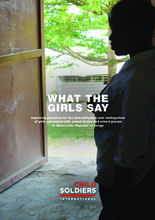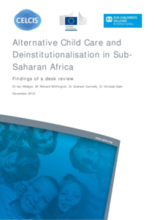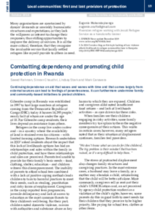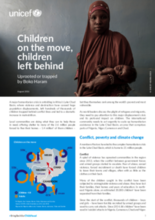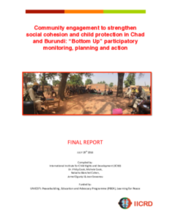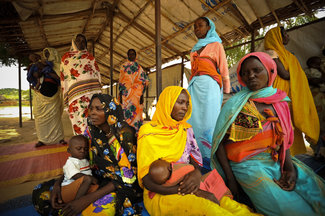

Displaying 21 - 30 of 102
The objectives of this analysis are to examine the whether gendered and parental attitudes of caregivers in South Kivu, Democratic Republic of Congo (DRC) were associated with their adolescent girls’ experiences of violence and girls’ attitudes towards intimate partner violence (IPV).
This country care review includes the care-related Concluding Observations adopted by the Committee on the Rights of the Child.
This report presents the findings of research conducted by Child Soldiers International to assess the effectiveness of release, psychosocial recovery and reintegration interventions (commonly referred to as ‘DDR’) for girls associated with armed groups in eastern Democratic Republic of Congo (DRC).
This issue brief from the UNHCR highlights key messages from UNHCR in regards to family tracing and reunification. The brief outlines the importance of children growing up in a safe family environment and the positive impact this has on a child's psychological, cognitive and physical development. In the best case, alternative care is only required as an interim measure while family tracing is carried out and until the time when children can be reunited with parents or family members.This brief is part of a series developed by UNHCR which aims to guide field operations on key thematic child protection issues.
This desk review provides a brief mapping and summary of existing knowledge on alternative care and deinstitutionalisation in Africa.
According to this article from Forced Migration Review, when the majority of aid comes from external sources, it can cause those who receive the aid to feel powerless.
This article discusses the major population displacement that unfolded in Africa’s Lake Chad Basin.
This is a report from the International Institute for Child Rights and Development (IICRD) examining the two year (2014-2016) Child Protection Social Cohesion initiative in Burundi and Chad.
Based on an in-depth analysis of Cameroonian policies for care and support to orphans and vulnerable children (OVC), this chapter will show that despite the inclusion of this issue as a strategic priority in fighting against AIDS, Cameroonian authorities are non-significant managers.
Given the importance of children’s care arrangements for their development, this essay summarizes efforts to measure trends in children’s care arrangements in two regions of the world—Southeast Asia and sub-Saharan Africa.


